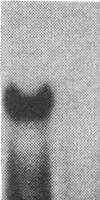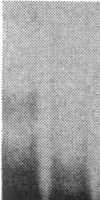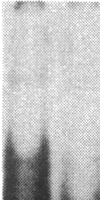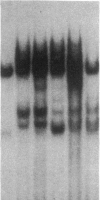Full text
PDF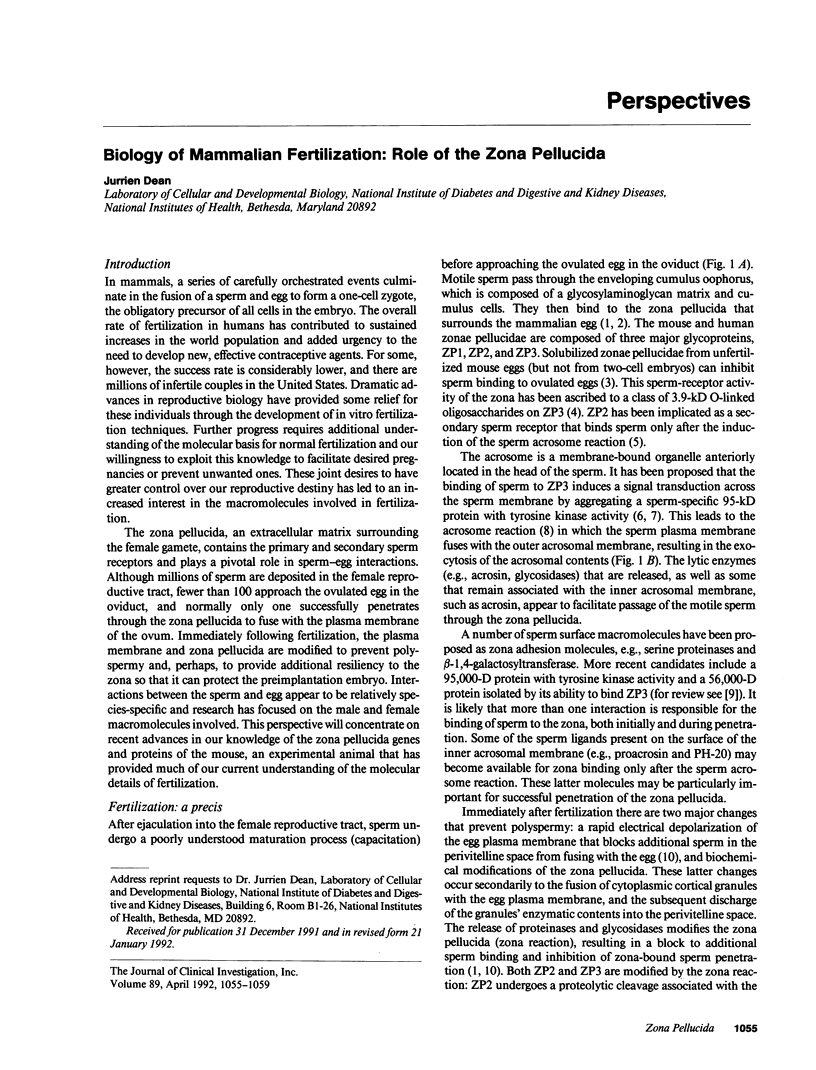
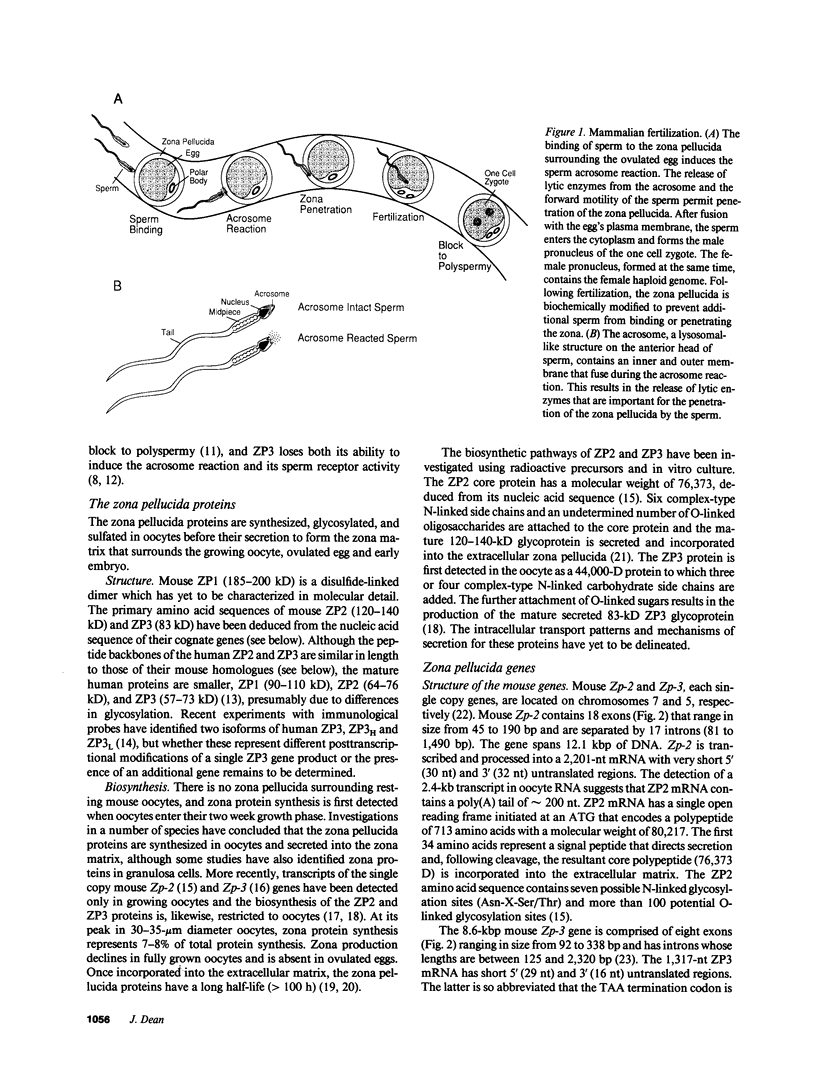
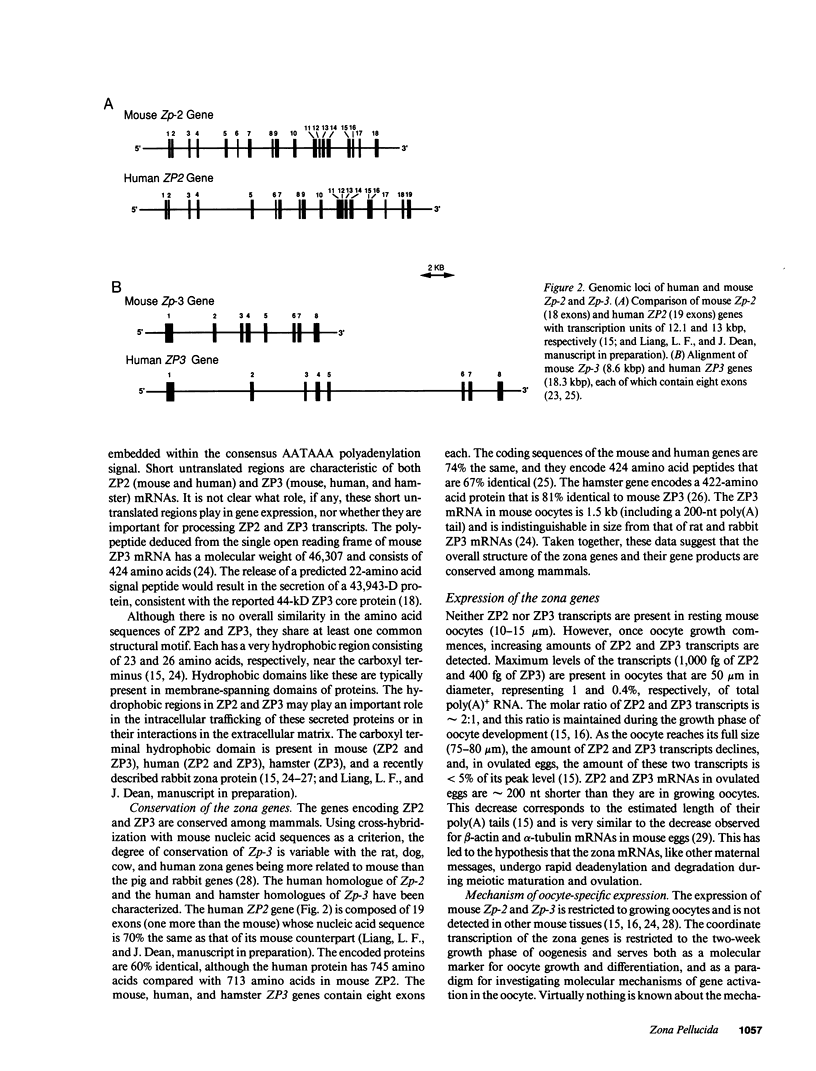
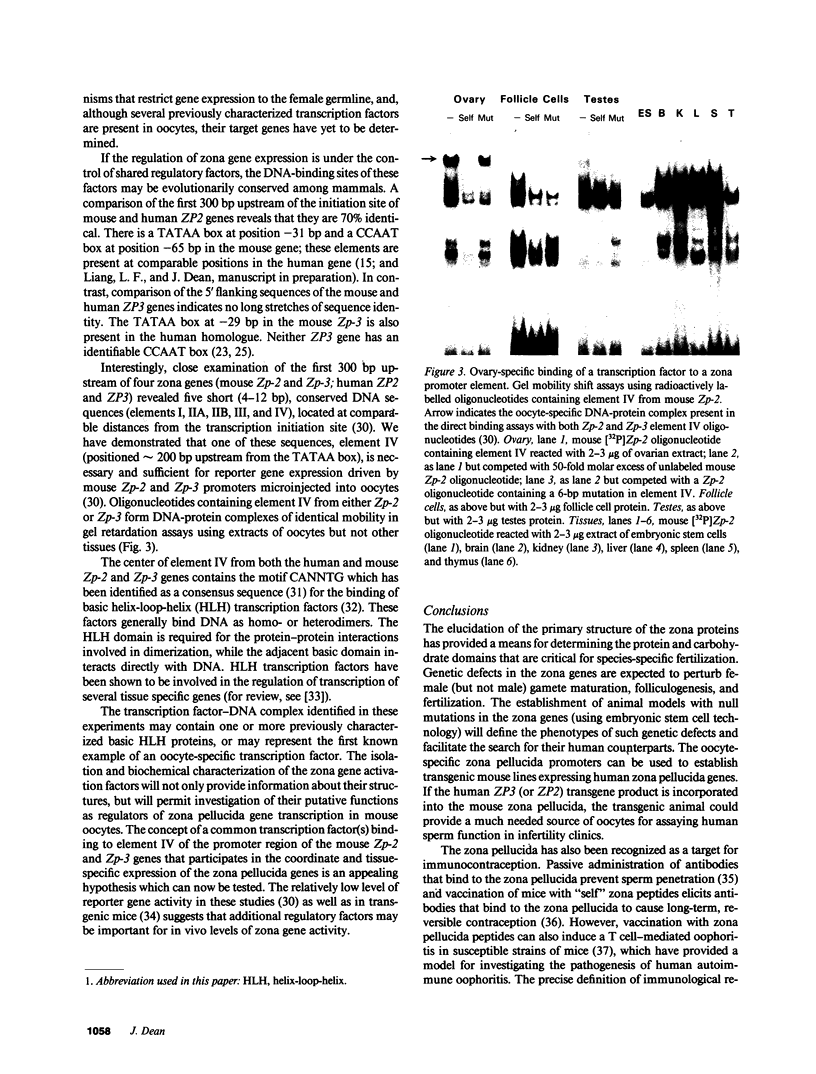
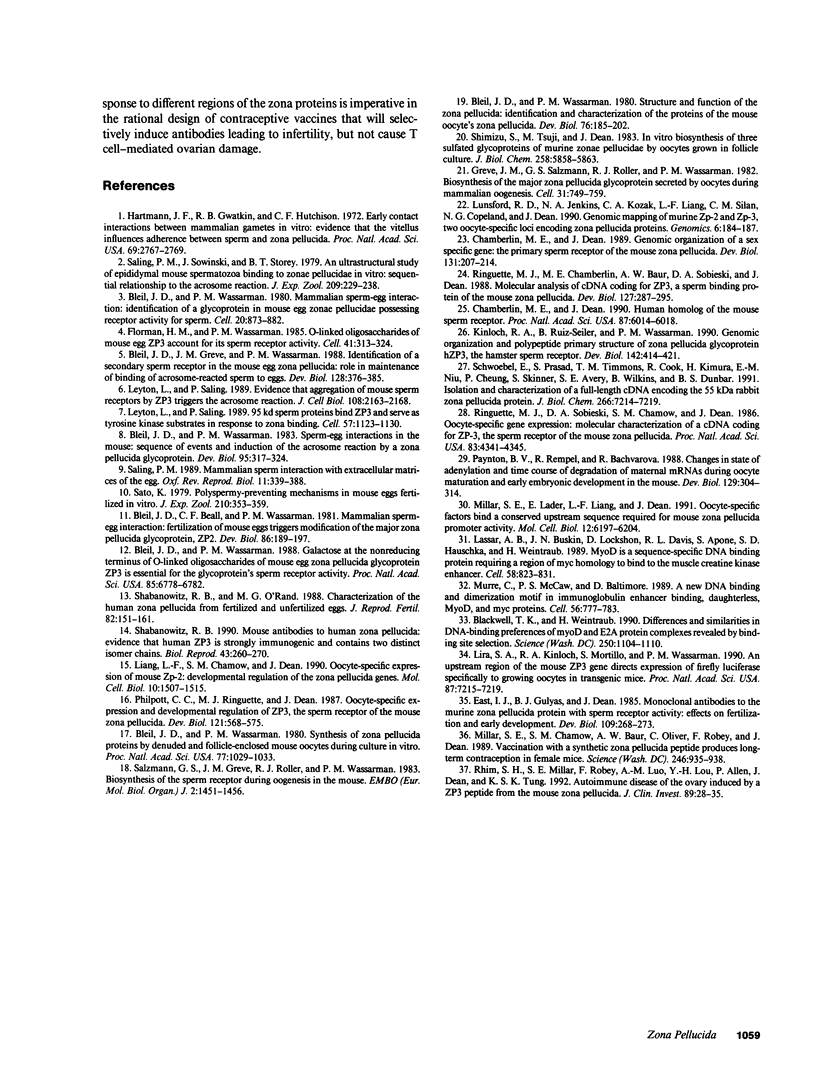
Images in this article
Selected References
These references are in PubMed. This may not be the complete list of references from this article.
- Blackwell T. K., Weintraub H. Differences and similarities in DNA-binding preferences of MyoD and E2A protein complexes revealed by binding site selection. Science. 1990 Nov 23;250(4984):1104–1110. doi: 10.1126/science.2174572. [DOI] [PubMed] [Google Scholar]
- Bleil J. D., Beall C. F., Wassarman P. M. Mammalian sperm-egg interaction: fertilization of mouse eggs triggers modification of the major zona pellucida glycoprotein, ZP2. Dev Biol. 1981 Aug;86(1):189–197. doi: 10.1016/0012-1606(81)90329-8. [DOI] [PubMed] [Google Scholar]
- Bleil J. D., Greve J. M., Wassarman P. M. Identification of a secondary sperm receptor in the mouse egg zona pellucida: role in maintenance of binding of acrosome-reacted sperm to eggs. Dev Biol. 1988 Aug;128(2):376–385. doi: 10.1016/0012-1606(88)90299-0. [DOI] [PubMed] [Google Scholar]
- Bleil J. D., Wassarman P. M. Galactose at the nonreducing terminus of O-linked oligosaccharides of mouse egg zona pellucida glycoprotein ZP3 is essential for the glycoprotein's sperm receptor activity. Proc Natl Acad Sci U S A. 1988 Sep;85(18):6778–6782. doi: 10.1073/pnas.85.18.6778. [DOI] [PMC free article] [PubMed] [Google Scholar]
- Bleil J. D., Wassarman P. M. Mammalian sperm-egg interaction: identification of a glycoprotein in mouse egg zonae pellucidae possessing receptor activity for sperm. Cell. 1980 Jul;20(3):873–882. doi: 10.1016/0092-8674(80)90334-7. [DOI] [PubMed] [Google Scholar]
- Bleil J. D., Wassarman P. M. Sperm-egg interactions in the mouse: sequence of events and induction of the acrosome reaction by a zona pellucida glycoprotein. Dev Biol. 1983 Feb;95(2):317–324. doi: 10.1016/0012-1606(83)90032-5. [DOI] [PubMed] [Google Scholar]
- Bleil J. D., Wassarman P. M. Structure and function of the zona pellucida: identification and characterization of the proteins of the mouse oocyte's zona pellucida. Dev Biol. 1980 Apr;76(1):185–202. doi: 10.1016/0012-1606(80)90371-1. [DOI] [PubMed] [Google Scholar]
- Bleil J. D., Wassarman P. M. Synthesis of zona pellucida proteins by denuded and follicle-enclosed mouse oocytes during culture in vitro. Proc Natl Acad Sci U S A. 1980 Feb;77(2):1029–1033. doi: 10.1073/pnas.77.2.1029. [DOI] [PMC free article] [PubMed] [Google Scholar]
- Chamberlin M. E., Dean J. Genomic organization of a sex specific gene: the primary sperm receptor of the mouse zona pellucida. Dev Biol. 1989 Jan;131(1):207–214. doi: 10.1016/s0012-1606(89)80052-1. [DOI] [PubMed] [Google Scholar]
- Chamberlin M. E., Dean J. Human homolog of the mouse sperm receptor. Proc Natl Acad Sci U S A. 1990 Aug;87(16):6014–6018. doi: 10.1073/pnas.87.16.6014. [DOI] [PMC free article] [PubMed] [Google Scholar]
- East I. J., Gulyas B. J., Dean J. Monoclonal antibodies to the murine zona pellucida protein with sperm receptor activity: effects on fertilization and early development. Dev Biol. 1985 Jun;109(2):268–273. doi: 10.1016/0012-1606(85)90454-3. [DOI] [PubMed] [Google Scholar]
- Florman H. M., Wassarman P. M. O-linked oligosaccharides of mouse egg ZP3 account for its sperm receptor activity. Cell. 1985 May;41(1):313–324. doi: 10.1016/0092-8674(85)90084-4. [DOI] [PMC free article] [PubMed] [Google Scholar]
- Greve J. M., Salzmann G. S., Roller R. J., Wassarman P. M. Biosynthesis of the major zona pellucida glycoprotein secreted by oocytes during mammalian oogenesis. Cell. 1982 Dec;31(3 Pt 2):749–759. doi: 10.1016/0092-8674(82)90329-4. [DOI] [PubMed] [Google Scholar]
- Hartmann J. F., Gwatkin R. B., Hutchison C. F. Early contact interactions between mammalian gametes in vitro: evidence that the vitellus influences adherence between sperm and zona pellucida. Proc Natl Acad Sci U S A. 1972 Oct;69(10):2767–2769. doi: 10.1073/pnas.69.10.2767. [DOI] [PMC free article] [PubMed] [Google Scholar]
- Kinloch R. A., Ruiz-Seiler B., Wassarman P. M. Genomic organization and polypeptide primary structure of zona pellucida glycoprotein hZP3, the hamster sperm receptor. Dev Biol. 1990 Dec;142(2):414–421. doi: 10.1016/0012-1606(90)90363-n. [DOI] [PubMed] [Google Scholar]
- Lassar A. B., Buskin J. N., Lockshon D., Davis R. L., Apone S., Hauschka S. D., Weintraub H. MyoD is a sequence-specific DNA binding protein requiring a region of myc homology to bind to the muscle creatine kinase enhancer. Cell. 1989 Sep 8;58(5):823–831. doi: 10.1016/0092-8674(89)90935-5. [DOI] [PubMed] [Google Scholar]
- Leyton L., Saling P. 95 kd sperm proteins bind ZP3 and serve as tyrosine kinase substrates in response to zona binding. Cell. 1989 Jun 30;57(7):1123–1130. doi: 10.1016/0092-8674(89)90049-4. [DOI] [PubMed] [Google Scholar]
- Leyton L., Saling P. Evidence that aggregation of mouse sperm receptors by ZP3 triggers the acrosome reaction. J Cell Biol. 1989 Jun;108(6):2163–2168. doi: 10.1083/jcb.108.6.2163. [DOI] [PMC free article] [PubMed] [Google Scholar]
- Liang L. F., Chamow S. M., Dean J. Oocyte-specific expression of mouse Zp-2: developmental regulation of the zona pellucida genes. Mol Cell Biol. 1990 Apr;10(4):1507–1515. doi: 10.1128/mcb.10.4.1507. [DOI] [PMC free article] [PubMed] [Google Scholar]
- Lira S. A., Kinloch R. A., Mortillo S., Wassarman P. M. An upstream region of the mouse ZP3 gene directs expression of firefly luciferase specifically to growing oocytes in transgenic mice. Proc Natl Acad Sci U S A. 1990 Sep;87(18):7215–7219. doi: 10.1073/pnas.87.18.7215. [DOI] [PMC free article] [PubMed] [Google Scholar]
- Lunsford R. D., Jenkins N. A., Kozak C. A., Liang L. F., Silan C. M., Copeland N. G., Dean J. Genomic mapping of murine Zp-2 and Zp-3, two oocyte-specific loci encoding zona pellucida proteins. Genomics. 1990 Jan;6(1):184–187. doi: 10.1016/0888-7543(90)90465-7. [DOI] [PubMed] [Google Scholar]
- Millar S. E., Chamow S. M., Baur A. W., Oliver C., Robey F., Dean J. Vaccination with a synthetic zona pellucida peptide produces long-term contraception in female mice. Science. 1989 Nov 17;246(4932):935–938. doi: 10.1126/science.2479101. [DOI] [PubMed] [Google Scholar]
- Millar S. E., Lader E., Liang L. F., Dean J. Oocyte-specific factors bind a conserved upstream sequence required for mouse zona pellucida promoter activity. Mol Cell Biol. 1991 Dec;11(12):6197–6204. doi: 10.1128/mcb.11.12.6197. [DOI] [PMC free article] [PubMed] [Google Scholar]
- Murre C., McCaw P. S., Baltimore D. A new DNA binding and dimerization motif in immunoglobulin enhancer binding, daughterless, MyoD, and myc proteins. Cell. 1989 Mar 10;56(5):777–783. doi: 10.1016/0092-8674(89)90682-x. [DOI] [PubMed] [Google Scholar]
- Paynton B. V., Rempel R., Bachvarova R. Changes in state of adenylation and time course of degradation of maternal mRNAs during oocyte maturation and early embryonic development in the mouse. Dev Biol. 1988 Oct;129(2):304–314. doi: 10.1016/0012-1606(88)90377-6. [DOI] [PubMed] [Google Scholar]
- Philpott C. C., Ringuette M. J., Dean J. Oocyte-specific expression and developmental regulation of ZP3, the sperm receptor of the mouse zona pellucida. Dev Biol. 1987 Jun;121(2):568–575. doi: 10.1016/0012-1606(87)90192-8. [DOI] [PubMed] [Google Scholar]
- Rhim S. H., Millar S. E., Robey F., Luo A. M., Lou Y. H., Yule T., Allen P., Dean J., Tung K. S. Autoimmune disease of the ovary induced by a ZP3 peptide from the mouse zona pellucida. J Clin Invest. 1992 Jan;89(1):28–35. doi: 10.1172/JCI115572. [DOI] [PMC free article] [PubMed] [Google Scholar]
- Ringuette M. J., Chamberlin M. E., Baur A. W., Sobieski D. A., Dean J. Molecular analysis of cDNA coding for ZP3, a sperm binding protein of the mouse zona pellucida. Dev Biol. 1988 Jun;127(2):287–295. doi: 10.1016/0012-1606(88)90315-6. [DOI] [PubMed] [Google Scholar]
- Ringuette M. J., Sobieski D. A., Chamow S. M., Dean J. Oocyte-specific gene expression: molecular characterization of a cDNA coding for ZP-3, the sperm receptor of the mouse zona pellucida. Proc Natl Acad Sci U S A. 1986 Jun;83(12):4341–4345. doi: 10.1073/pnas.83.12.4341. [DOI] [PMC free article] [PubMed] [Google Scholar]
- Saling P. M. Mammalian sperm interaction with extracellular matrices of the egg. Oxf Rev Reprod Biol. 1989;11:339–388. [PubMed] [Google Scholar]
- Saling P. M., Sowinski J., Storey B. T. An ultrastructural study of epididymal mouse spermatozoa binding to zonae pellucidae in vitro: sequential relationship to the acrosome reaction. J Exp Zool. 1979 Aug;209(2):229–238. doi: 10.1002/jez.1402090205. [DOI] [PubMed] [Google Scholar]
- Salzmann G. S., Greve J. M., Roller R. J., Wassarman P. M. Biosynthesis of the sperm receptor during oogenesis in the mouse. EMBO J. 1983;2(9):1451–1456. doi: 10.1002/j.1460-2075.1983.tb01607.x. [DOI] [PMC free article] [PubMed] [Google Scholar]
- Sato K. Polyspermy-preventing mechanisms in mouse eggs fertilized in vitro. J Exp Zool. 1979 Nov;210(2):353–359. doi: 10.1002/jez.1402100219. [DOI] [PubMed] [Google Scholar]
- Schwoebel E., Prasad S., Timmons T. M., Cook R., Kimura H., Niu E. M., Cheung P., Skinner S., Avery S. E., Wilkins B. Isolation and characterization of a full-length cDNA encoding the 55-kDa rabbit zona pellucida protein. J Biol Chem. 1991 Apr 15;266(11):7214–7219. [PubMed] [Google Scholar]
- Shabanowitz R. B. Mouse antibodies to human zona pellucida: evidence that human ZP3 is strongly immunogenic and contains two distinct isomer chains. Biol Reprod. 1990 Aug;43(2):260–270. doi: 10.1095/biolreprod43.2.260. [DOI] [PubMed] [Google Scholar]
- Shabanowitz R. B., O'Rand M. G. Characterization of the human zona pellucida from fertilized and unfertilized eggs. J Reprod Fertil. 1988 Jan;82(1):151–161. doi: 10.1530/jrf.0.0820151. [DOI] [PubMed] [Google Scholar]
- Shimizu S., Tsuji M., Dean J. In vitro biosynthesis of three sulfated glycoproteins of murine zonae pellucidae by oocytes grown in follicle culture. J Biol Chem. 1983 May 10;258(9):5858–5863. [PubMed] [Google Scholar]




